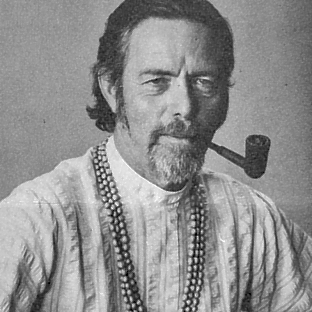
Alan Watts
Buddhism
Alan Watts was a distinguished British philosopher, writer, and speaker who gained recognition for interpreting and popularizing Eastern philosophy, making it accessible to Western audiences.
Fluent in Chinese, Watts delved deeply into the study of Zen Buddhism as well as the core beliefs and practices of various religions and philosophies from India and East Asia. He was an influential member of the London Buddhist Lodge, and in 1931, he became the organization’s secretary. In 1936, Watts attended the World Congress of Faiths at the University of London, where he encountered D.T. Suzuki, a renowned Zen Buddhism scholar who significantly impacted his thinking. That same year, inspired by Suzuki’s work, Watts published his first book, “The Spirit of Zen.”
In 1938, Watts relocated to the United States and began studying Zen Buddhism, but he eventually left the training, dissatisfied with the teacher’s methods. He subsequently enrolled in the Anglican Seabury-Western Theological Seminary in Evanston, Illinois, where he immersed himself in the study of Christian scriptures, theology, and church history, ultimately earning a Master’s degree in theology. His thesis was published under the title “Behold the Spirit: A Study in the Necessity of Mystical Religion.”
